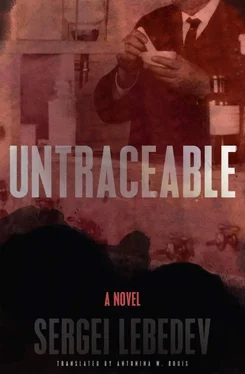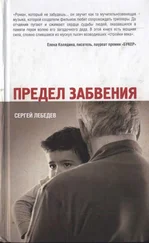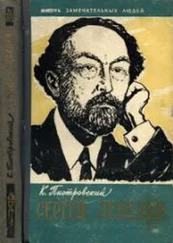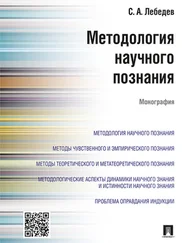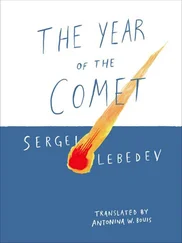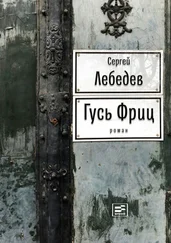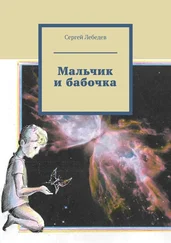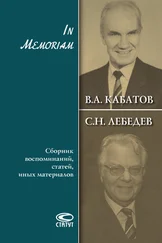Сергей Лебедев - Untraceable
Здесь есть возможность читать онлайн «Сергей Лебедев - Untraceable» весь текст электронной книги совершенно бесплатно (целиком полную версию без сокращений). В некоторых случаях можно слушать аудио, скачать через торрент в формате fb2 и присутствует краткое содержание. Город: New York, Год выпуска: 2021, ISBN: 2021, Издательство: New Vessel Press, Жанр: Современная проза, на английском языке. Описание произведения, (предисловие) а так же отзывы посетителей доступны на портале библиотеки ЛибКат.
- Название:Untraceable
- Автор:
- Издательство:New Vessel Press
- Жанр:
- Год:2021
- Город:New York
- ISBN:978-1-939931-90-0
- Рейтинг книги:3 / 5. Голосов: 1
-
Избранное:Добавить в избранное
- Отзывы:
-
Ваша оценка:
- 60
- 1
- 2
- 3
- 4
- 5
Untraceable: краткое содержание, описание и аннотация
Предлагаем к чтению аннотацию, описание, краткое содержание или предисловие (зависит от того, что написал сам автор книги «Untraceable»). Если вы не нашли необходимую информацию о книге — напишите в комментариях, мы постараемся отыскать её.
Untraceable — читать онлайн бесплатно полную книгу (весь текст) целиком
Ниже представлен текст книги, разбитый по страницам. Система сохранения места последней прочитанной страницы, позволяет с удобством читать онлайн бесплатно книгу «Untraceable», без необходимости каждый раз заново искать на чём Вы остановились. Поставьте закладку, и сможете в любой момент перейти на страницу, на которой закончили чтение.
Интервал:
Закладка:
The boy stood listening to every word.
“Your father is a good chemist,” Uncle Igor said. “But he is afraid of what he’s researching. Afraid. That’s why I will never take him into my laboratory. Are you afraid?”
“No,” he replied without thinking.
“Open the end one,” Uncle Igor said pointing to the lockers.
The boy opened it. Something lay inside, squashed between the locker walls: a green rubber skin grafted to a gas mask. He pulled it out, extremely heavy, slippery with talcum powder, resembling the scales of a snakeskin shed years ago.
“Put it on,” Uncle Igor said.
He managed to get his legs into the rubber pants and pulled on the suit. The tight stiff collar constricted his throat. The cuffs were tight on his wrists. Breathing was hard and a fog appeared before his eyes. Uncle Igor’s hands straightened his back and closed the seam along the spine, tied the straps on his ankles—and he found himself inside a rubber womb, a live infant in the body of a dead reptile.
“Turn around. Look in the mirror.” Uncle Igor’s voice seemed far away.
He moved clumsily, as if learning to walk, shuffling the unwieldy boots. He desperately wanted to be out of the rubber womb and its slippery, deadening embrace.
“Look at yourself,” Uncle Igor repeated out of the depths.
Through the fogged lenses of the mask he made out the mirror.
A monster looked at him. A horrible swamp creature with dull round eyes, mouthless, faceless, alien to every living thing, with no resemblance or relation to anything.
It was him. A different him.
Special. Unrecognizable.
Suddenly the boy felt the unknown peace, the highest protection that the suit bestowed on him.
The rubber folds no longer squeezed him. His throat got used to the collar’s hold. The boy stood without sensing the many kilograms of rubber weight, he seemed to be floating. The thing in the mirror was he, and he did not want the merging to end. This was more thrilling than Uncle Igor’s medal-laden uniform, more exciting than anything he had ever felt.
In that outfit he feared nothing. Like Uncle Igor.
When the boy climbed out, sweaty, reddened, smeared with talcum and a slippery paste, completely happy, Uncle Igor smiled broadly and slapped him on the shoulder.
“That’s our old suit. We began with those. Go now, they’ll see you out. I’ll write the recommendation. If you graduate with honors, I’ll hire you.”
He froze, he couldn’t believe it. Uncle Igor gently shoved his wet back: Go, go.
CHAPTER 4
Lieutenant Colonel Shershnev took the day off. He was on his way to celebrate his son’s birthday. Sixteen. Last year in school.
His wife had divorced him after his third tour in Chechnya, when Maxim was three. Now she was remarried and Maxim had a stepsister. Shershnev tried to believe that the war had broken them up. The usual officer’s story, he wasn’t the first or the last. There had been a lot of divorces in his unit in those years. The country lived as if there were no battles on its territory. His wife, Shershnev kept telling himself, had joined the majority that did not want to know about blood and mud, the military and the victims.
Yet he had not been able to convince himself completely, and this worried Shershnev, who could not tolerate ambiguity.
He did not regret what he had done in that war—or the following ones.
There was only one incident that Shershnev considered—well, probably wrong, fraught. He couldn’t find better words. Wrong, not in the moral sense, his conscience didn’t bother him. Speaking only of morality, he would have acted the same way again. Yet he sensed some kind of violation then, some twist of fate, that predetermined—not directly—his wife’s departure and the gradual loss of contact with his son, who had transformed, it seemed to Shershnev, into an alien, thin-boned, wishy-washy breed.
Marina was overly sensitive, to the point of divination; she could guess something out of thin air and convey it consciously or not to their son. She did not forbid them from seeing each other; on the contrary, she sometimes asked him to come by and spend the day with Maxim. But Shershnev sensed that his son was not simply separating from him because he was growing older; he seemed to know something he should not about his father and seemed to be asking, looking for an argument, insults: Who are you really, Father? What is your true face? What did you do in the war?
Shershnev categorically rejected the idea that he had something to be ashamed of. He considered his conscience clear.
Yet he returned dozens of times to that night, to that shipping container in the back of the military base that served as a cell and interrogation room. He remembered the smell of blood and vomit; one of his colleagues joked that the enemy’s vomit and shit smelled different. Dim light, a naked man in a gas mask handcuffed to the wall.
Repeated questions: who, when, where. Screams, whispers, curses, cries, moans.
Lieutenant Evstifeyev, squeezing the air hose leading to the mask.
The familiar feeling of power: turning the prisoner into a nameless dummy with a faceless rubber head, forcing the naked body, open to suffering, to respond to the rhythmic and inexorable language of pain: who, where, when? The freedom of not hiding their faces, multiplying the power, making it profoundly personal and thus particularly intense and intoxicating.
Now Shershnev searched his memory for another exit from the container, from its four metal walls. He was not repenting, he didn’t care about the torture, the squashed fingers, broken ribs, and eyes bulging from suffocation behind the murky glass of the gas mask.
But he should have guessed, was obligated to guess right away that the agent was merely using them to do his dirty work. Shershnev had spent a long time looking for the field commander he was ordered to destroy. One of the agents pointed to the commander’s alleged messenger. In fact, he gave Shershnev a nobody, a teenager who knew nothing, drunk on hatred for the soldiers; he was the last male in a clan that was feuding with the agent’s clan.
But Shershnev fell for it, impermissibly caught up in the heat of the hunt, and believed, he believed that the prisoner, just a kid, knew where the commander was.
It was all in vain. Their stubborn torture. His adolescent, ritual pride that would not let him admit he was not the one.
Their meager inventiveness.
His patience with being a victim.
When he finally broke and spoke freely, Shershnev instantly understood whom he had allowed to fool him.
They could have tried to save the kid. Given or sold him to the relatives who stood at the gates of the base day and night, handing over worn lists, compiled by unknown people. This was a procedure with secondary prisoners—they gave a lot more money for a live one than a corpse.
But Shershnev ordered them to kill the boy and bury him in the secret pit behind the cement plant. The mistake was much too shameful.
It was a good thing that Evstifeyev was a dull and obedient chump; he didn’t seem to have understood a thing. If the boy had talked, both the locals and his colleagues would have heard. Rumors spread quickly here.
The military could arrest anyone and beat a confession out of them; that was in the nature of things. But an officer who fell as stupidly as Shershnev had for the agent’s trick would have turned into a jerk for his men and a laughingstock for others; his authority would vanish in the blink of an eye.
Shershnev did not wait for the execution of his order. He left. When he returned in a week’s time, he asked Sergeant Mishustin, drunkard, fornicator, executioner, and trader in prisoners—Is it done?—and received the expected answer, Yeah, it’s done, it’s done, cap.
Читать дальшеИнтервал:
Закладка:
Похожие книги на «Untraceable»
Представляем Вашему вниманию похожие книги на «Untraceable» списком для выбора. Мы отобрали схожую по названию и смыслу литературу в надежде предоставить читателям больше вариантов отыскать новые, интересные, ещё непрочитанные произведения.
Обсуждение, отзывы о книге «Untraceable» и просто собственные мнения читателей. Оставьте ваши комментарии, напишите, что Вы думаете о произведении, его смысле или главных героях. Укажите что конкретно понравилось, а что нет, и почему Вы так считаете.
